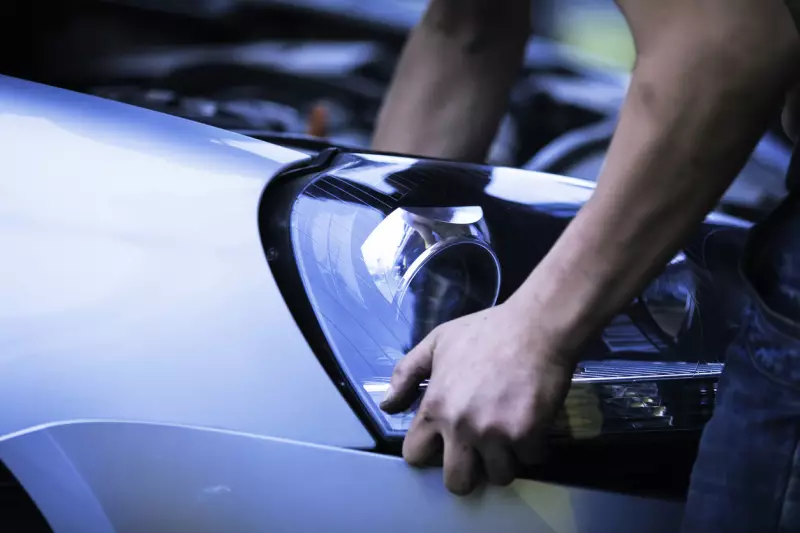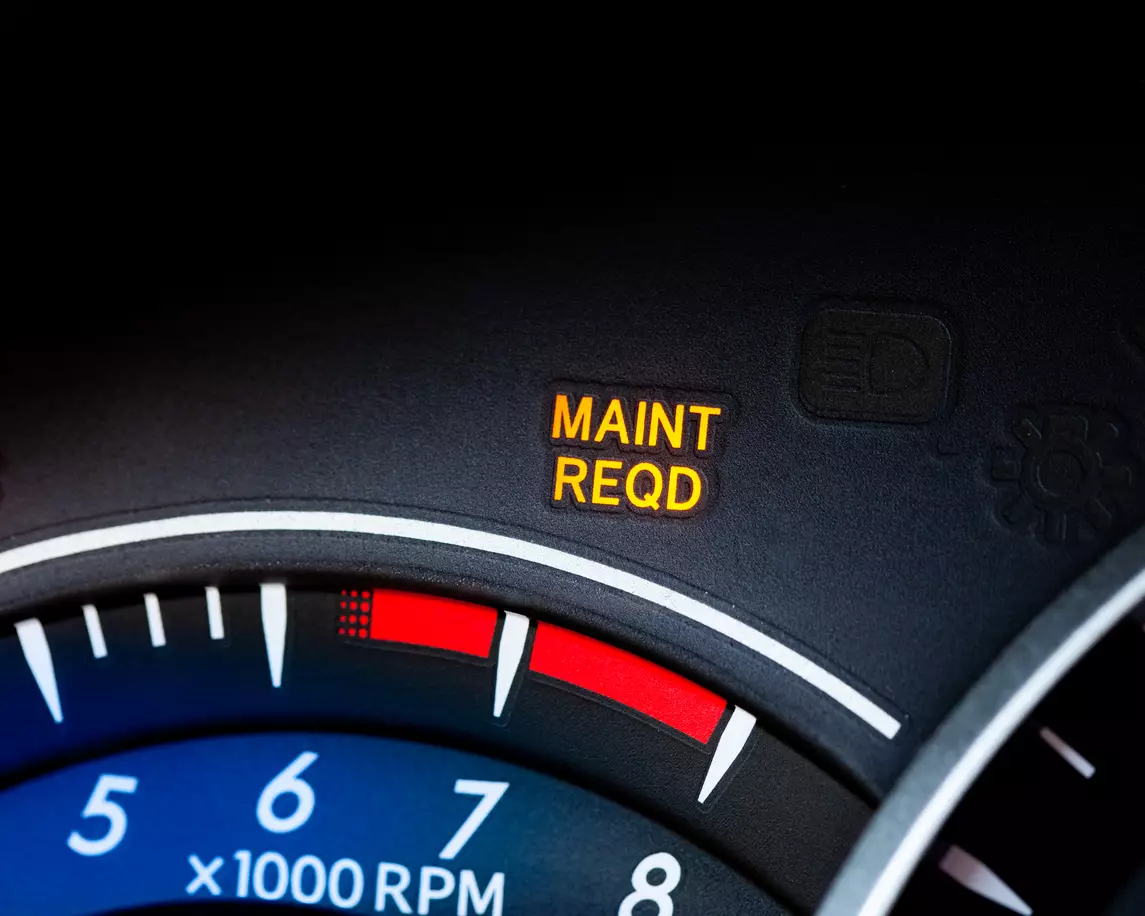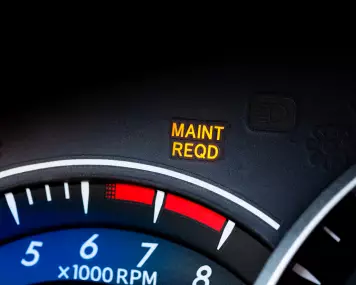We don't think much about our headlights, but they're one of the biggest contributors to our survival on the road. They're indispensable in the dark but also serve splendidly in bad weather and as a warning flash to inattentive oncoming traffic.
Despite their importance, headlights, like other crucial vehicle components, need occasional maintenance or replacement. This includes cleaning headlights to maintain their effectiveness, as well as replacing bulbs when necessary. Fortunately, switching out the required bulbs is a straightforward process and simple enough for many owners to DIY themselves.
Choosing the Right Headlights
There are various bulb types to choose from when replacing headlights. Each provides unique benefits for your vehicle, differing in factors like lifetime, size, brightness, safety, and base compatibility.
You should know what kind of headlights you opt for since you'll use them for at least a few hundred hours of driving. The four types of headlights are halogen, LED, and HID.
Halogen Bulbs
Halogen headlights are the longest-standing option and are still used in most vehicles. Their popularity stems from a lower price tag, sometimes costing up to 80 percent less than more modern options.
However, these bulbs suffer from a comparatively low lifetime, beam strength, and spread. These weaknesses make halogens objectively less helpful and safe on the road, but not to a life-threatening degree.
HID Bulbs
High-Intensity Discharge (HID) headlights work differently from traditional bulbs. They don't include a filament and instead ignite the xenon gas trapped within the glass. The result is an extremely high-power light but also requires a correspondingly significant voltage.
HIDs command a high price point since their brightness better cuts through poor visibility, but their most significant issue is startup time. These bulbs take a while to reach a usable brightness, making them a poor choice for high beams, which are frequently turned on and off.
LED Bulbs
Light Light-emitting diode (LED) bulbs are becoming the new standard. LEDs pass an electrical current through a microchip, which lights up the connected diodes. Their exponentially improved energy efficiency and lifetime are pushing other options out of the picture.
Although LEDs don't achieve the same brightness as HIDs, they allow much greater flexibility in how the light is used. Reconfiguring diode placement creates wide or focused beams. Additionally, because LEDs aren't igniting a gas, the produced light is more consistent and flicker-free.
The only downside of LED bulbs is that they are the most expensive option of the bunch. The microchips give off minor heat, enough to endanger the nearby engine. This requires most LED systems to include a cooling feature, which jacks up the price.
What Headlight Bulb Fits My Car?
After choosing the type of bulb you want, you still have to find the right fit. Not all headlights have the same shape and size, so you'll need to check what's compatible with your specific make, model, and year.
Don't think that you can eyeball the size and go from there. Consult the owner manual you've hopefully kept in the glove compartment. If you can't find the physical copy, most manufacturers also have the information available online.
Alternatively, you can preemptively remove the headlight and check the side of the bulb. The bulb's serial number should be printed on the surface. If neither method is an option, you must visit a professional shop and let them confirm the right bulb.
Unless you have a spare at home, you'll need to go out and buy a new headlight bulb. Take a fully functional vehicle or ask for a ride to the store. Driving with a broken or removed headlight is illegal in every state. This is true even if you're not driving at night or in low-visibility weather.
How to Change a Headlight Bulb?

Changing a headlight is straightforward enough and only requires basic tools. Some details will change from vehicle to vehicle, but the broad steps will be similar.
Preparation
Stay safe and wear gloves and long sleeves when performing auto maintenance. You might have to reach deep into the vehicle to undo connections or remove another part to gain access to the bulb.
Before beginning, confirm whether you're replacing the low or high beams, which may require different bulb types. The high-beam bulb will always be the inside fixture, and the low-beam bulb will be on the outside.
Also, ensure that the car is turned off and the bulb is cool to the touch. Light bulbs get hot, especially high-lumen bulbs used for headlights. HID lights give off a lot of UV radiation and can even burn skin without direct contact. Wait for everything to cool down before performing maintenance.
Accessing and Removing the Bulb
Gaining access to the headlight varies across vehicles. The difficulty ranges from undoing a few thumbscrews to removing surrounding, bulkier parts.
We recommend consulting the vehicle manual for the exact steps instead of blindly searching for a path to the headlight. Without the proper method, you may remove the wrong thing, such as the blinker light.
Many vehicles utilize a headlight assembly. This dedicated housing stores the headlight bulbs and controls optics with built-in reflectors. The headlight assembly is usually held in place with a few screws that become visible after lifting the hood.
Remove these screws and gingerly lay the assembly lens down onto the fascia. After this, you should have easy access to remove any other bindings and twist out the headlight bulbs.
Other vehicles have more involved processes, such as going through the wheel well or removing the whole bumper.
Installing the New Bulb
Now, the easy part. Insert the new bulbs into their respective headlight sockets. Take care not to touch the new bulb with your skin. Leaving body oil on the surface of the glass will cause hotspots to form over time, shortening the headlight's lifespan.
Double-check that you're matching the high and low beams correctly. Wait until both are secured according to the manual before reattaching any bindings or clips.
Test your newly installed headlights before closing everything up. Nothing is more frustrating than having to redo the entire process because you assumed everything was working correctly.
How Long Does it Take to Replace a Headlight?
As you might have guessed, the required time to change a headlight varies greatly. It depends on your familiarity with the vehicle and your ability to deal with unforeseen problems like rusted components, damaged screws, and challenging-to-reach headlight placement.
Anyone with the correct information can complete the process in ten to twenty minutes if your vehicle uses a headlight assembly system.
More complex access methods will take significantly longer. Likely, most owners aren't familiar with the names of specific parts of the vehicle's body and are even more unfamiliar with how to take them apart. Looking up names and deciphering diagrams will lengthen the replacement anywhere between 45 minutes to multiple hours.
How Much Does it Cost to Change a Headlight?
Handling the replacement personally will be cheaper than going to a shop. Taking it on yourself only costs you the price of the bulbs and a bit of time. However, the price of headlight bulbs changes considerably depending on their type.
Halogens are the cheapest option, typically costing between $10 and $40. Prices take a massive leap when discussing HID and LED. These types are similarly priced with popular brands like Sylvania and Phillips, which cost between $50 and $100.
Some vehicles are monumentally more difficult to service, with most vintage cars requiring a total housing replacement. This means the bulbs cannot be replaced separately from the assembly, which requires many more parts and labor time. A total housing replacement can cost up to thousands of dollars.
What If My Headlight Doesn't Work After Replacement?
If your fresh-out-of-the-box replacement isn't working, you may have an electrical problem. The fuse or wiring may have an issue.
You can inspect fuses in the vehicle's fuse box by pulling each out with insulated pullers. Each one should have a transparent center where you can see a thin metal conductor. If the conductor is broken, the fuse won't deliver power to your headlights.
Anyone can easily fix a broken fuse since most auto stores carry universal replacements. However, blown fuses usually have an underlying cause that will cause the problem to repeat. So, a visit to the mechanic is often inevitable.
Conclusion
Switching out a broken or fading headlight is reasonably straightforward. Most complications come from removing other parts to gain access to the bulbs.
However, while the broad process is similar for most vehicles, the details will vary wildly. You might need a different screwdriver or wrench to undo the bindings, or perhaps your vehicle requires a specialized bulb only available through the manufacturer.
Take advantage of online resources or seek assistance from automotive professionals. Your headlights help secure the safety of everyone in your vehicle by cutting through the dark and warning you about what's ahead.




















